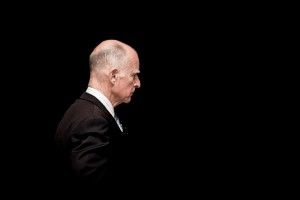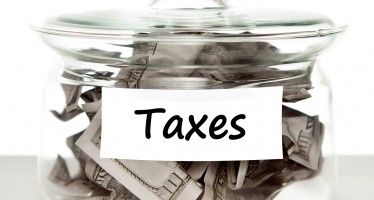Gov. Brown opposes CA minimum wage hike
Opening another fissure with members of his own party, Gov. Jerry Brown has come down on the opposite side of a proposed statewide increase in the minimum wage.
Changing course
In an indication of the mood in the governor’s office, Brown’s number-crunchers came down hard on the proposed hike. Kristin Shelton, the state’s budget program manager, said the Department of Finance opposed the bill “because it results in significant, unbudgeted costs to the General Fund,” according to Bloomberg Politics.
“She said the proposed minimum wage would have a negative impact on California’s economy, though losses from higher production costs to businesses would be partially offset from additional spending by minimum wage workers.”
As Bloomberg noted, the finance department has calculated that an additional increase of $1 in wages above what Brown signed into law two years ago “would cost the state almost $400 million this fiscal year in higher wages paid to in-home health care workers, seasonal park employees and other state staff making minimum wage.”
SB3, introduced by state Sen. Mark Leno, D-San Francisco, “would raise California’s minimum wage to $11 in 2016 and $13 in 2017, then tie the minimum wage to inflation starting in 2019,” according to the Washington Times. “He says his bill is needed to keep up with the cost of living and help low-wage workers make ends meet. It already passed the Senate.”
Yet Brown has refused to praise the idea. “At a recent luncheon attended by representatives of private industry, Brown touted the 2013 state law that will automatically raises minimum wage to $10 in 2016 as a sign of economic progress;” but, as the Sacramento Business Journal reported, Brown “did not mention the pending legislation to raise it further.”
Republican agreement
The California GOP quickly found itself in the now-familiar position of offering cautious praise for the governor, who has earned Republican kudos for holding a sometimes hard negotiating line against ambitious state Democrats eager to spend larger portions of the Golden State’s surging tax revenues.
“We have to find a way to help create jobs to lift our lowest income families out of poverty and expand the middle class,” said Senate Minority Leader Bob Huff, R-San Dimas, according to the Los Angeles Times. “The Governor’s Department of Finance correctly points out yet another increase in minimum wage would lead to slower personal income growth for low income families.”
A showdown approaches
Brown has faced a concerted push by legislative Democrats to follow their lead on mandatory wage hikes. “New legislation in California would protect cheerleaders for professional sports teams from receiving low pay that some in the industry say amounts to less than minimum wage,” as Time reported. “The bill, the first of its kind in the nation, passed the California State Senate Monday and awaits the signature of Governor Jerry Brown.”
In a statement, Assemblywoman Lorena Gonzalez, D-San Diego, the bill’s author, framed the legislation as a matter of human rights. “Everyone who works hard to provide a great game day experience deserves the same basic level of dignity and respect on the job, starting with simply being paid for their work,” she said.
Business reacts
To the chagrin of Democrats to Brown’s left, his current posture has now put him closer to the Chamber of Commerce — long associated with Republican polices on finance and the economy. But their push to increase the statewide wage, fueled by significant hikes in big Golden State cities where Democrats predominate, has been blunted in part by the reactions of businesses themselves.
In San Francisco, for instance, the popular Chipotle chain of fast casual Mexican food has ratcheted up prices — “in part to offset higher labor costs,” according to spokesman Chris Arnold. “California, and San Francisco in particular, has a high cost of doing business,” he said, according to the Chicago Tribune. Arnold said that because occupancy costs are “about double the Chipotle average as a percentage of sales,” wage hikes can take an outsized toll.
Related Articles
In Long Beach, taxis to copy the Uber approach
The arrival of Uber and Lyft has had a radical effect on surface transportation and seems likely to lead to
New legislator pitches merit pay
Feb. 4, 2010 By JOHN SEILER Fresh faces bring fresh ideas. Just elected in a special election, new Assemblyman Chris
BOE Study: Proposed tax on services would take in $122.6 billion
Just in time for Tax Day, the Board of Equalization issued a study requested by the Senate Committee on Governance





